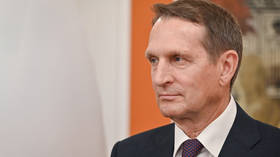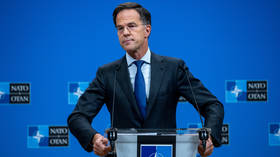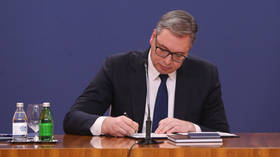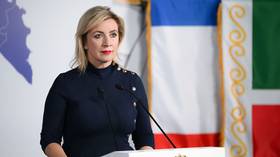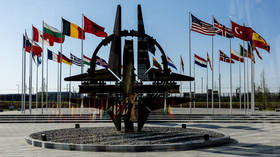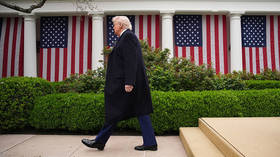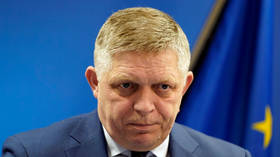Kim-Putin summit: What talks in Russia mean for US following Trump's Hanoi fiasco
North Korean leader Kim Jong-un’s meeting with Russian President Vladimir Putin is shrouded in the veil of political uncertainty, but analysts believe it could be a roundabout way to reboot denuclearization talks with the US.
The meeting is taking place in Vladivostok, 129 kilometers from the border Russia shares with North Korea. It is Russia’s shortest international border, only 17km along the Tyumen River. Since the demise of the Soviet Union, North Korea has figured little in Moscow’s geopolitical calculus, as Russia sided with the West in backing UN sanctions against Pyongyang.
The collapse of denuclearization talks between Kim and US President Donald Trump in Hanoi back in February, however, appears to have pushed Pyongyang and Moscow closer together. What does that mean for Washington?
Being a neighbor of North Korea, Russia has a natural stake in its stability, journalist and author Mary Dejevsky told RT. The summit will be a signal to Trump that Pyongyang has other countries to turn to, she said, but it’s not something that he should take as a personal affront.
“He might possibly tweet some supposedly horrified reaction, but actually he would understand exactly why [the summit] happened,” Dejevsky said.
All about America
Denuclearization talks with the US overshadow all other aspects of North Korean diplomacy, and the Vladivostok summit is no exception, believes Fyodor Lukyanov, editor-in chief of the magazine Russia in Global Affairs.
“What Kim is looking for now is to build up political and psychological pressure against the US, to show he has reliable and powerful friends. But this is all about the relations with America,” Lukyanov told RT.
Also on rt.com North Korea lambasts Bolton for ‘dim-sighted’ denuclearization remarksThe meeting with Putin comes less than two months after the failure of the North Korean leader’s summit with Trump in Hanoi, Vietnam. The Hanoi talks faltered after Washington rejected Pyongyang’s request for partial sanctions relief in exchange for nuclear and missile concessions. Kim has blamed Trump’s hawkish National Security Advisor John Bolton and Secretary of State Mike Pompeo for the failure.
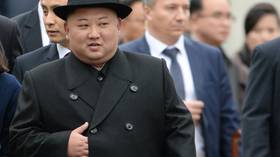
Even as Pyongyang has asked for Bolton and Pompeo’s removal from the talks, there are reports that Kim has sidelined one of his own hawks, Kim Yong-chol, who was missing from the leader’s entourage in Vladivostok.
The high-ranking official had been by Kim’s side at both summits with Trump, as well as two of Kim’s visits to China, and had personally traveled to the US in May 2018 to prepare the first Trump-Kim summit in Singapore.
Also on rt.com Trump wrecked summit with Kim by suggesting N. Korea give all its nukes to US – reportReserve of goodwill
Russia is much less of a player on the Korean Peninsula today than China or the US, or even the Soviet Union in earlier days. This relative detachment, however, gives Moscow a certain advantage with Pyongyang, said Evgeny Kim, a researcher at the Institute of Korean Studies in Moscow.
“If you visit North Korea and catch a ride there, the music records you’ll hear playing will likely be North Korean and Russian songs. We were close allies in the past, and the goodwill remains today,” he said.
Washington will not see the summit as an “anti-Trump action,” said Kim. On the contrary, “the Americans ask for our opinion on how better to deal with North Korea, which arguments they would listen to.”
He pointed out that just last week, US presidential advisor for Russian affairs Fiona Hill visited Moscow, where she met a group of Russian scholars specializing in Korea, among other things.
Think your friends would be interested? Share this story!



